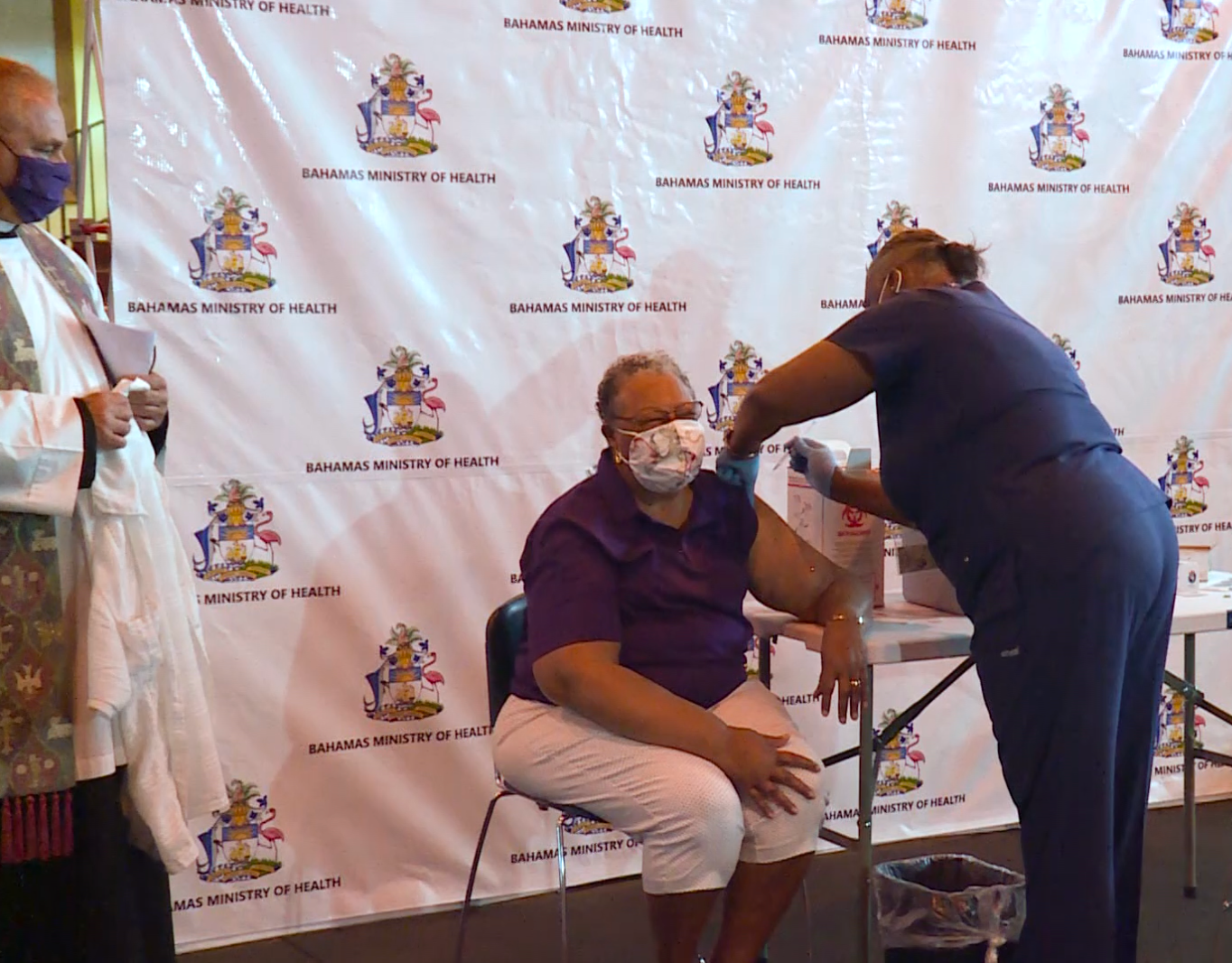Govt would suspend vaccine program if additional doses do not arrive by month’s end
NASSAU, BAHAMAS — Head of the National COVID-19 Vaccine Consultative Committee Dr Merceline Dahl-Regis said yesterday that while vaccine hesitancy in The Bahamas poses a “real concern”, she believes there are more who wish to be vaccinated that those who do not.
She said she believes misinformation can be attributed to the hesitancy among some, but those “who don’t want it, need not take it”.
“It is global; it’s not only here,” Dahl-Regis told the media just minutes after receiving her first dose of the Oxford AstraZeneca COVID-19 vaccine.

“You have a lot of misinformation circulating.
“For example, the association with AstraZeneca and the thromboembolism (blood clots) in two patients; 26 million took it and two patients.
“And now they have established that it is unrelated to the vaccine. But the hesitancy is really related to misinformation.
“When it comes to mistrust of vaccines, this vaccine is new; unlike all the other vaccines that we have used, we don’t have a long history.
“We don’t know what [will happen in ] 10 years, 15 years, 25 years, compared to some of the other experiences that we’ve had.”
But Dahl-Regis said the public should recall how successful The Bahamas was when it led the charge with its measles, mumps and rubella campaign in 1998.
There has not been a congenital rubella case in The Bahamas since 2000.
“We’ve had the success and if folks would only reflect back, there was never hesitancy; there was total embrace,” Dahl-Regis said.
“People are struggling, fighting, competing to the get vaccine.
“There is a global shortage right now of vaccines for COVID-19.
“There will be an abundance later on, but right now there is a global shortage.
“So, we are really thrilled to have the vaccine and those who don’t want it, need not take it and there are many more people who want it than the supply that we have.
“So, those who want it will get it.”
Several public and private sector nurses turned up for vaccination yesterday.
The government will distribute all 20,000 doses of the vaccine it received last Wednesday to an equal number of people as a first dose.
AstraZeneca is a two-dose vaccine.
The World Health Organization (WHO) recommends receiving the second dose within four to 12 weeks of the first dose.
The Bahamas is expected to receive just over 33,000 doses of AstraZeneca through the COVAX Facility before the end of the month, and another 60,000-plus doses before the end of May.
Asked about concerns the second batch of vaccines could be delayed due to global shortages, Dahl-Regis said there is a commitment from the COVAX Facility to deliver vaccines before the end of the month.
“However, if we look at the end of March and that shipment is not here, we will then have to hold vaccines until we have that shipment to be sure that we have the second dose for the vaccine,” she said.
“That is how we intend to proceed.”
According to available data, the vaccine provides up to 76 percent effectiveness against the virus after the first dose.
That effectiveness increases to around 82 to 89 percent upon receiving a second dose.
Health officials have pointed out that protection against the virus becomes effective 14 days after being vaccinated.






